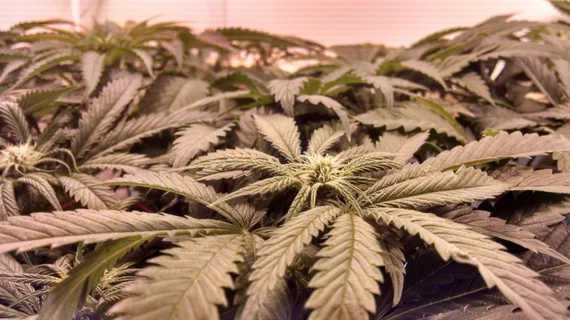Marijuana use among young adults not associated with a heightened risk of stroke
Smoking marijuana is not associated with an increased risk of early onset ischemic stroke in young adults, according to a new study published in Stroke.
The study’s authors analyzed data from a population-based, case-control study with 1,090 cases and 1,152 controls. The cohort included first-ever ischemic stroke patients between the ages of 15 and 49 from 59 hospitals in the Baltimore-Washington area.
After exclusions, including a history of vasoactive drugs associated with stroke risk such as cocaine and amphetamine derivatives, the final study population totaled 751 cases and 813 controls.
According to the authors, there were no meaningful differences in rates of diabetes and hypertension "between ever and never users of marijuana." However, the group noted, marijuana users were more likely to be current smokers and users of alcohol.
The authors also found that there were comparable rates of marijuana use among both the stroke patients and the controls (36.1% versus 38.4%, respectively). A history of marijuana use was not associated with stroke after adjusting for age, sex, race, the amount of current smoking, current alcohol use, hypertension and diabetes.
Among individuals who smoked marijuana at least once a week, however, the authors did note a "nonsignificant trend towards increased stroke risk."
In a secondary analysis, the authors analyzed the entire study population, including those using vasoactive drugs, and also found no link between marijuana use and stroke.
“Although we did not demonstrate an association between marijuana use and an increased risk of early onset ischemic stroke, our statistical power was limited for assessing the association among very heavy users,” wrote first author Tara Dutta, MD, with department of neurology at University of Maryland School of Medicine, and colleagues. “The issue of whether high frequency or high dose of use is associated with stroke risk is increasingly important as marijuana use becomes more widespread. At present, the epidemiological literature, including our study, does not provide evidence that marijuana use is causally associated with stroke.”
Read the full study here.
